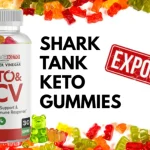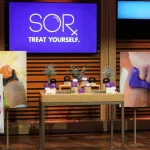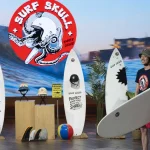
Highlights
- The major highlight of the 10th season of Shark Tank was its completion of 200 episodes.
- This season saw diverse products/business ideas, including pet products and door locks.
- Cup Board Pro was a breakthrough pitch with a joint deal from all five panelists.
Since its inaugural season, Shark Tank has been setting milestones in the reality TV space. The show has always evolved, introducing us to the concept of ‘kidpreneurs’ to inviting guest Sharks. Through this season, Shark Tank also stepped into its 200th episode.
Though the number may seem high for a reality show, the content was not monotonous owing to the variety of pitches brought in the season. Entrepreneurs presented products from diverse verticals, from ingenious pet products to tech-equipped door locks. While some secured deals, others failed to convince the Sharks.
Shark Tank Season 10: Best Pitches
The products that stood out in the Shark Tank season 10 had great presentation and commendable margins. Whereas, some left an impression on the investors due to the entrepreneurs’ truthfulness about their emotions. From BasePaws to Cup Board Pro, look at the best pitches that secured huge deals.
1. BasePaws
BasePaws finds a place in the list of best Shark Tank Season 10 pitches because of the entrepreneur’s confidence in the presentation, clarity of vision, and command of numbers related to the business. Below is a small recap of its appearance on the entrepreneurial show:
Anna Skaya, an aspiring entrepreneur, tried her luck on Shark Tank with BasePaws, a DNA test kit curated especially for cats. She began the pitch, elaborating on the features and benefits of the tech-powered kit. Basepaws sought an investment of $250K for 5% equity. Each kit costed $25 and it was sold in the market for $95.
Kevin O’Leary was hugely impressed and offered her $250K for 8.3% equity and 1.7% advisory shares. Hearing this, the other Sharks, except Robert Herjavec, backed out as it was something Kevin generally never did. Anna eventually secured a joint deal with Kevin and Robert for $125K each at 10%.
BasePaws found great success after Shark Tank and launched many other kits for cats and dogs. In 2022, it was sold for $50 million to Zoetis, a renowned animal health brand.
2. Cup Board Pro
From an impressive product to a sentimental backstory, Cup Board Pro had all the qualities of a good pitch. It emerged as one of the few rare cases where all the judges held a similar view about a product and gave a unanimous verdict on making the deal. Below is a small flashback of its Shark Tank appearance:
Three siblings, Keira, Kaley, and Christian Young, approached the panelists with Cup Board Pro, their late father’s invention. Seeking $100K for a 10% equity, they revealed their dad was a firefighter and died of cancer related to cleaning the World Trade Center during 9/11.
To explain better, Keira played a demo video in which their father, Keith Young, showed how his newly invented cutting board captures food and liquid scraps far more efficiently than a standard cutting board. The story moved all five judges, who offered a joint $100K for 20% equity.
As of 2024, the company’s lifetime revenue went past $15 million.
3. Buttercloth
Buttercloth was one of the best pitches brought on Shark Tank Season 10 because of the calm and humble approach of the entrepreneurs. While the judges were wary of its growth, the entrepreneurs stood firm and turned the losing deal in their favor with their touching story. Here is a small recap:
The entrepreneur duo of Danh Tran and Gary Falkenberg made their way to the investors with Buttercloth, a line of unique, comfortable shirts. The valuation sought was $250K for a 10% equity. Danh then shared an emotional immigration story, which touched the Sharks. But they backed out one by one, citing the high valuation.
The only Shark left was Robert Herjavcec, who also migrated to the USA and established his name in the industry. Realizing this, Danh tried to convince him, saying the venture meant everything to him and that he had given his all to it. After this, as Danh wanted, Robert locked the deal at $250K for 25% equity.
Buttercloth did great after the deal and now earns an annual revenue of $6 million.
Shark Tank Season 10: Worst Pitches
Despite the great pitches, just like in earlier seasons, Shark Tank Season 10 also presented the audiences with a range of bad pitches. Hailing from different domains, entrepreneurs received negative comments from the Sharks due to poor presentation, unawareness of business figures, and unpreparedness with demos.
1. Silkroll
Out of the variety of pitches brought to the Sharks, Silkroll was the worst. This was due to multiple reasons, such as a highly confusing presentation, unclear revenue model, and outrageously high valuation. Here is a complete recap of what happened throughout the pitch:
Seeking a $250K investment at 3% equity in their clothing venture, Erin Wold and Janet Wu tried to convince the judges. However, when they inquired about the revenue model, the entrepreneurs explained its functioning on a confusing ‘point’ basis.
When asked further about the business, the duo used technical terms like artificial intelligence. These factors, along with a low revenue of $35, annoyed the Sharks. They emphasized this in their remarks and stepped back from investing, citing poor revenue, excessive use of technical terms, and a high valuation.
Although Silkroll was unanimously called out by the investors on Shark Tank Season 10, its lifetime sales are a whopping $20 million (as of 2024).
2. Lockstraps
In one of the worst pitches brought on Shark Tank Season 10, Lockstraps was called out by the investors for its poor presentation and lack of vision. Additionally, the entrepreneur was reluctant to state the actual sales figures, which stopped the Sharks from making an offer. Have a look at its journey:
Brought to the judges by Jeff Cranny, the company offered straps that could be used to secure motorcycles. The investment sought was $200K for 25% equity. Going ahead in the pitch, Jeff revealed to have made $135K in its starting year, i.e., 2009.
When the panelists inquired about the sales figures, he did not have a proper answer, which irritated them. Kevin O’Leary called it a ‘horrible presentation’ and backed out from investing. Barbara Corcoran criticized him for the unconvincing pitch and lack of vision. Ultimately, none of the judges offered a deal.
Despite the poor presentation and no deal on the show, the company’s annual revenue reached $4 million by 2022.
3. Haven
Haven was one of the funniest yet worst pitches on Shark Tank Season 10. We are saying so because although it made the investors laugh out loud, the pitch reflected the unpreparedness of the entrepreneurs. Read about its unique Shark Tank journey as given below:
In one of the most hysterically crazy episodes, the entrepreneur duo of Clay Banks and Alex
Bertelli sought $500K for 6% equity for Haven. This wedge lock kept doors secured from the inside. Things took a crazy turn when Alex went on to give a live demo by kicking on a door secured with a deadlock, which the production placed on the set.
But he failed miserably, which made the Sharks burst into laughter. None of them eventually made an investment, as the presentation clearly showed their lack of preparation. Additionally, the judges were not happy with the product’s small margins.
Although Haven was placed on the show’s ‘Greatest Pitch Fails’ list, it went on to make $4 million in annual revenue by 2021.
Conclusion
Shark Tank Season 10 offered its audiences a plethora of pitches; some are still remembered as success stories. However, some failed to leave an impression on the panelists and secured zero deals. The key takeaway was that although poor presentation and unpreparedness may lead to Shark Tank failure, great ideas can achieve success later on.
References
- Here’s What Went Down With SilkRoll After Shark Tank, Women.com, Bernadette Roe
- Here’s What Happened To Cup Board Pro After Shark Tank, Mashed, Jennifer Mashuga
- ‘Shark Tank’ investor Kevin O’Leary likely made over 20 times his money on a startup selling genetic-testing kits for cats, Markets.BusinessInsider, Theron Mohamed





















